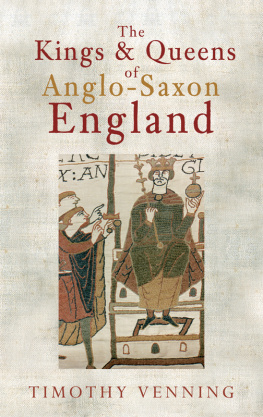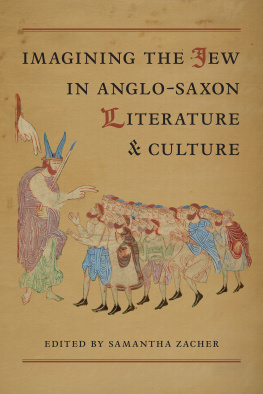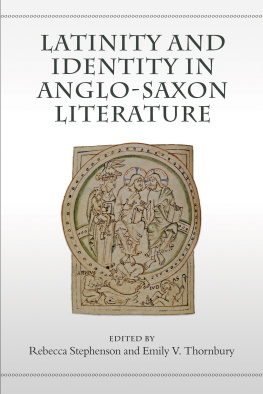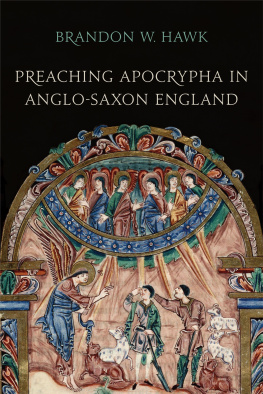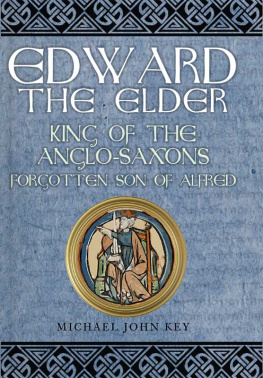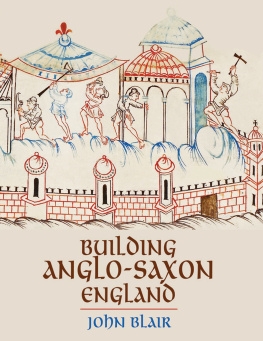STRIVING WITH GRACE:
VIEWS OF FREE WILL
IN ANGLO-SAXON ENGLAND
Striving with Grace:
Views of Free Will in
Anglo-Saxon England
AARON J KLEIST

University of Toronto Press Incorporated 2008
Toronto Buffalo London
Printed in Canada
ISBN 978-0-8020-9163-5

Printed on acid-free paper
Library and Archives Canada Cataloguing in Publication
Kleist, Aaron J
Striving with grace: views of free will in Anglo-Saxon
England / Aaron J Kleist.
(Toronto Old English series)
Includes bibliographical references and index.
ISBN 978-0-8020-9163-5
1. Free will and determinism Religious aspects Christianity. 2. Free will and determinism Early works to 1800. 3. Grace (Theology) Early works to 1800. 4. Religious thought England Middle Ages, 6001500. 5. Christian literature, Latin (Medieval and modern) England History and criticism. 6. English literature Old English, ca. 4501100 History and criticism. I. Title. II. Series.
BT809.K58 2008 233'.7 C2008-901560-6
University of Toronto Press acknowledges the financial assistance to its publishing program of the Canada Council for the Arts and the Ontario Arts Council.
University of Toronto Press acknowledges the financial support for its publishing activities of the Government of Canada through the Book Publishing Industry Development Program (BPIDP).
Contents
Acknowledgments
Without three things, the labours underlying the pages in your hand would have been to no avail: counsel, funding, and support. For the first I am indebted to Michael Lapidge; from him I learned that pages of research must lie behind every written word. My thanks also go to those who counselled from a distance, supplying invaluable data from their unpublished research: Timothy Graham, Petrus Tax, Teresa Webber, and Joseph Wittig. Most of all, however, I wish to thank Andy Orchard, who taught me that a written word need not show the pages of research behind it. Seldom have I found a man so gifted to be so selfless.
Funding to produce this extensive revision and augmentation of a Cambridge thesis has been provided by a Fellowship from the National Endowment for the Humanities and by Biola University, which graciously granted me a research leave in 2004; to Chris Grace, Linda Williams, and the distinguished members of Biolas Research and Development Committee, I am additionally obliged for generous subvention support. I am deeply grateful as well for the invitations extended by Simon Keynes and Michael Franklin to serve during my leave as Honorary Research Associate of the Department of Anglo-Saxon, Norse, and Celtic and as Visiting Scholar of Hughes Hall at the University of Cambridge.
That mainstay of research, however, the quiet of sanctuary from multifarious demands, has only come through the sacrifice of others. My extended family of Kleists and Misers have been a steadfast source of encouragement through the course of this endeavour. Benjamin Flemming came to the rescue in the eleventh hour of producing the index. Day to day, however, it has been the selfless efforts of my wife that have made my research possible, epitomized by the gift of countless early mornings. To you, Amanda, I offer my admiration for the labours underlying the pages in your hand.
Introduction
This is not a book primarily about theology, though theological issues are central to its focus. It is not a book primarily about translation, though how writers translated ideas across centuries is likewise a crucial concern. Rather, this work considers a fundamental question of human experience and ways in which writers have sought to resolve it: in this uncertain world filled with factors beyond our control, to what extent do our decisions and efforts make a difference? For Anglo-Saxon England, as for so much of the medieval West, the problem was compounded by a theistic tradition. Does the existence of a sovereign God, absolute in his control and in his knowledge of future things, make human choice and striving meaningless? Are we masters of our fate to some extent, at least or are we simply puppets acting out our empty parts?
For the Western church in the Middle Ages, it was Augustine of Hippo who formulated the official position on the issue, and it would not be unreasonable to presume that his influence on England would be pervasive. One of the few major studies of Anglo-Saxon theology, for example, Lynne Grundys examination of the teaching of lfric of Eynsham, builds on the assumption that almost all the ideas contained within lfrics sermons are to be found in Augustine, who was either their originator or their refiner. While, as we shall see, Augustines influence on lfric and on Anglo-Saxon England as a whole was in fact profound, rarely are matters among Anglo-Saxons so straightforward. Other Fathers with different perspectives also influenced English writers. The English blended patristic thought and added decidedly unorthodox ideas. Their primary sources were at times suspect or blatantly heretical and yet they occasionally so revised their material that little heresy remained.
This work seeks to untangle the complex interplay of factors that produced strikingly different, if often complementary, explanations of free will in early England. examines the work of Augustine as a benchmark against which later teaching may be measured. Beginning by surveying various catalysts for Augustines thought the Manichaeans, Donatists, Pelagians, and Semi-Pelagians it outlines the changes in Augustines view of free will over the course of his career. To determine which Augustine Anglo-Saxons may have known the early Augustine, the mature Augustine, or a confusing mixture of the two it attempts to reconstruct the knowledge of Augustines works at various locations and points in English history. Through a study of the manuscript evidence and known sources for Anglo-Saxon works, it reveals whether the material available to the authors under consideration would have given a balanced, incomplete, or distorted view of Augustines foundational teaching on the will.
consider two Fathers who rivalled Augustines impact on early England: Gregory the Great and the Venerable Bede. The one was a foreigner directly responsible for the establishment in England of Roman Christian practice and Benedictine monasticism; the other was an English luminary who drew on his predecessors work and transmitted it to later Anglo-Saxon England. These sections discuss the Fathers debt to and departure from Augustines teaching on free will, reconstruct later English writers potential knowledge of their works, and describe the Fathers teaching on free will, particularly as transmitted in England from the time of Bede to the Conquest.
potential access to commentaries on De consolatione. It shows both his independence from these commentaries and his linguistic and conceptual debt to Boethiuss work itself. Closely examining a central metaphor in the poem, moreover, it reveals the impact Lantfreds source has on his theology.
addresses another text produced under the Benedictine Reform that draws on and is shaped by a theologically suspect source. The text is De adiutorio Dei et libero arbitrio, supervised and perhaps composed by Wulfstan the Homilist, archbishop of York. Its surprising source is John Cassians Collatio XIII, the central statement of Semi-Pelagianism. The chapter sets forth the evidence for Wulfstans authorship of the treatise before reviewing the origins of Semi-Pelagianism, the significance of
Next page

